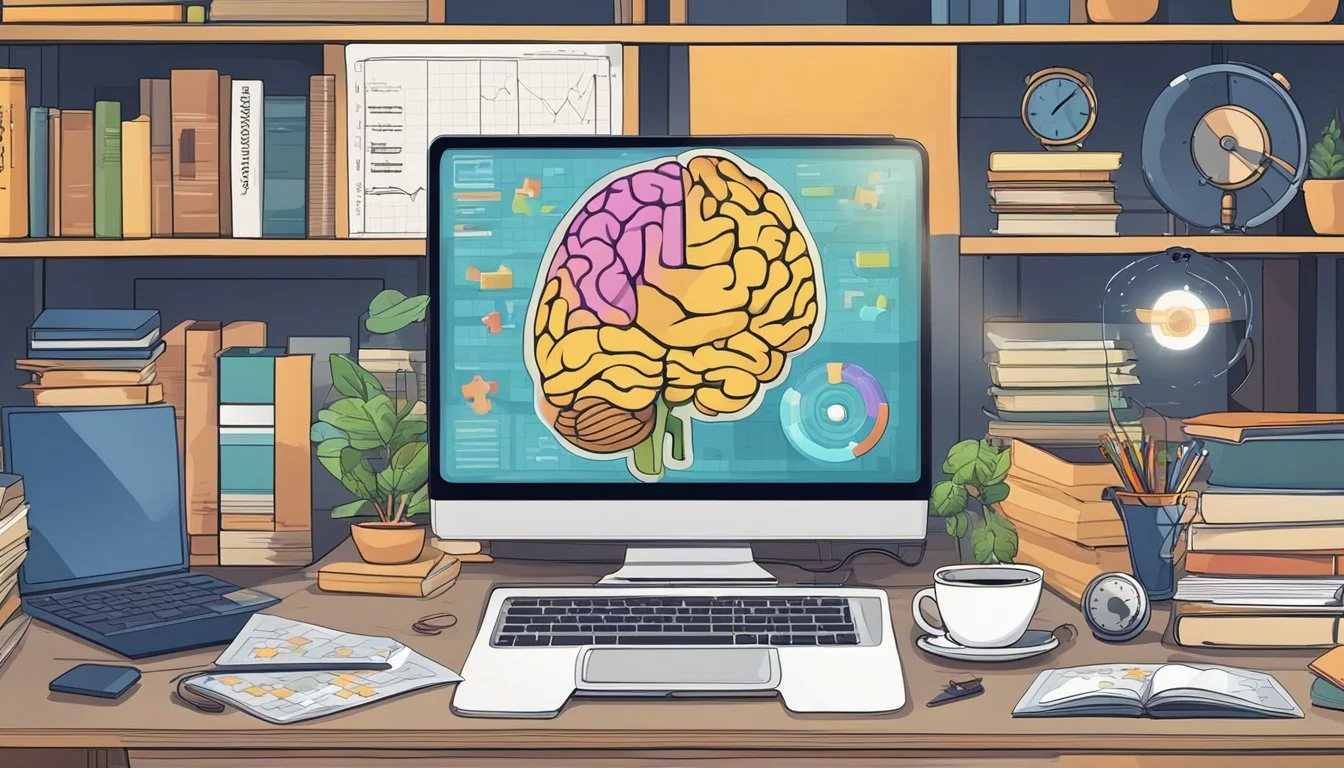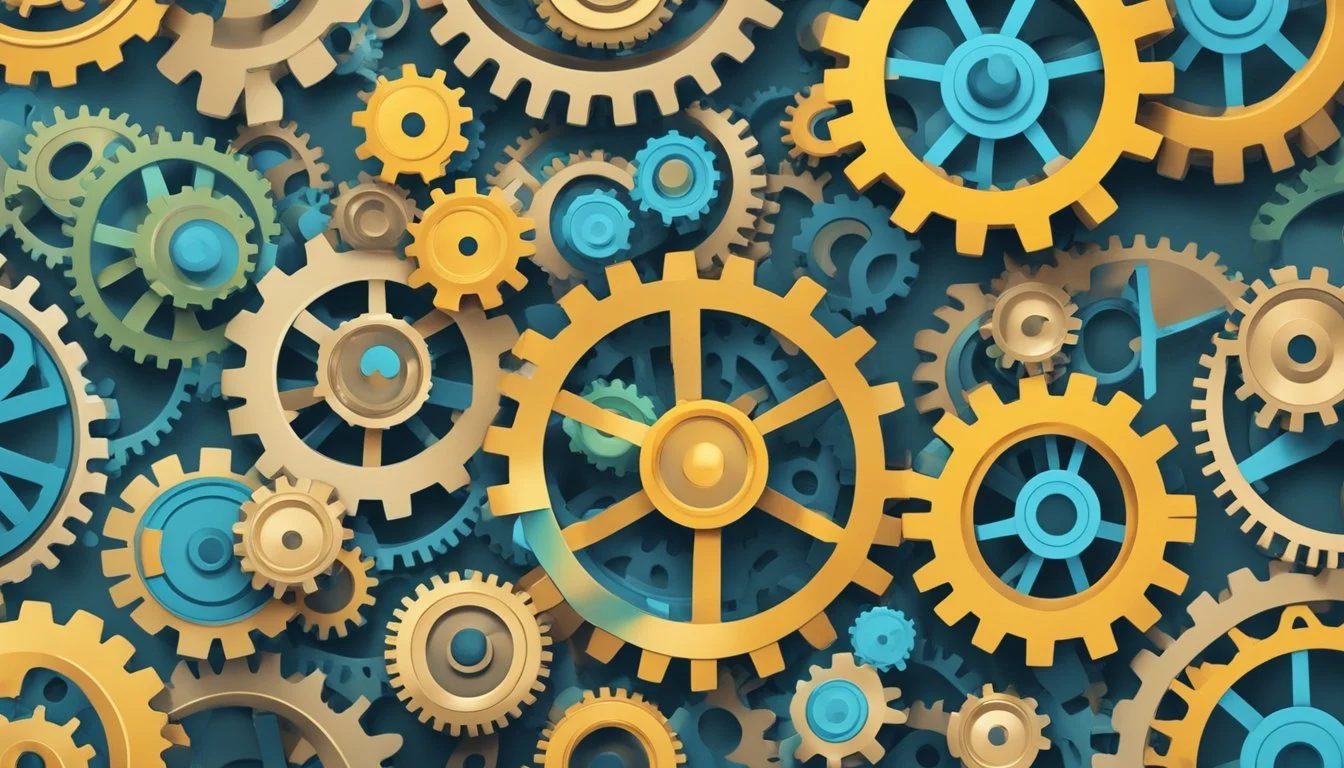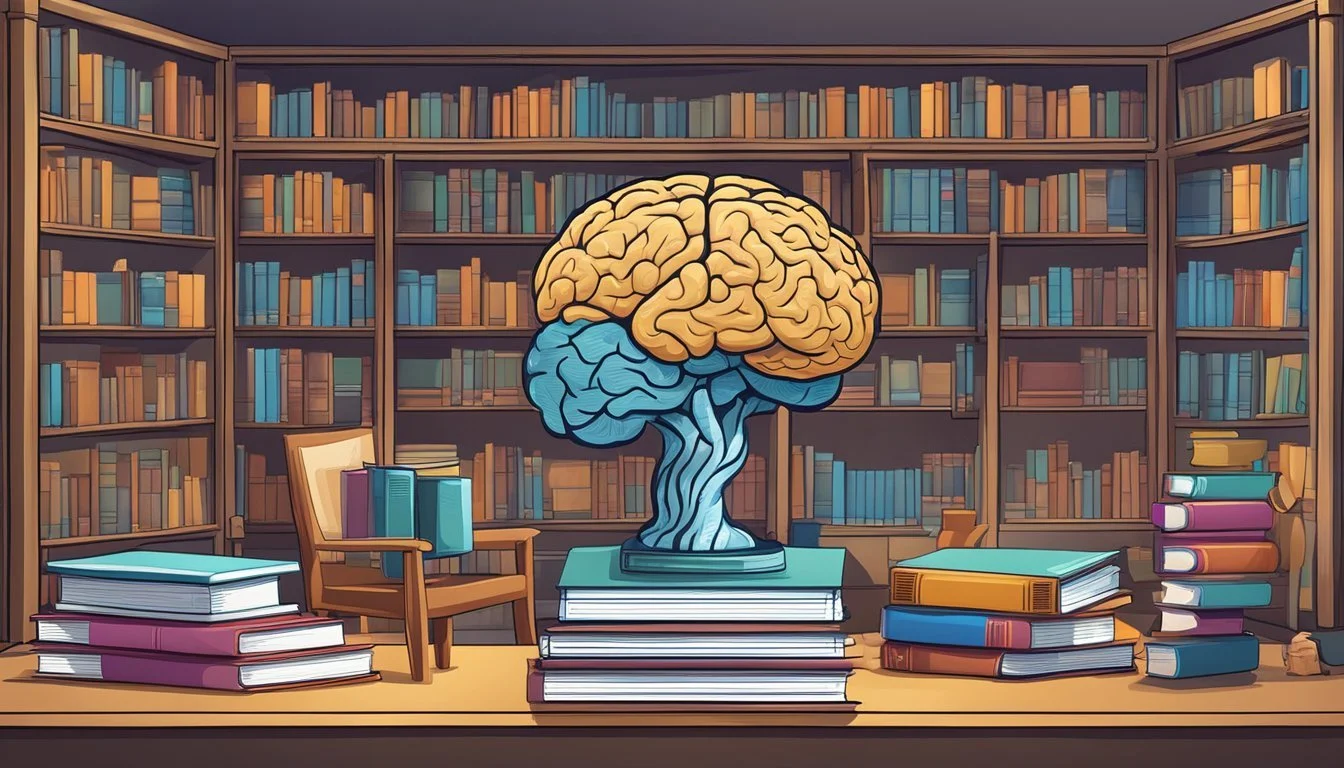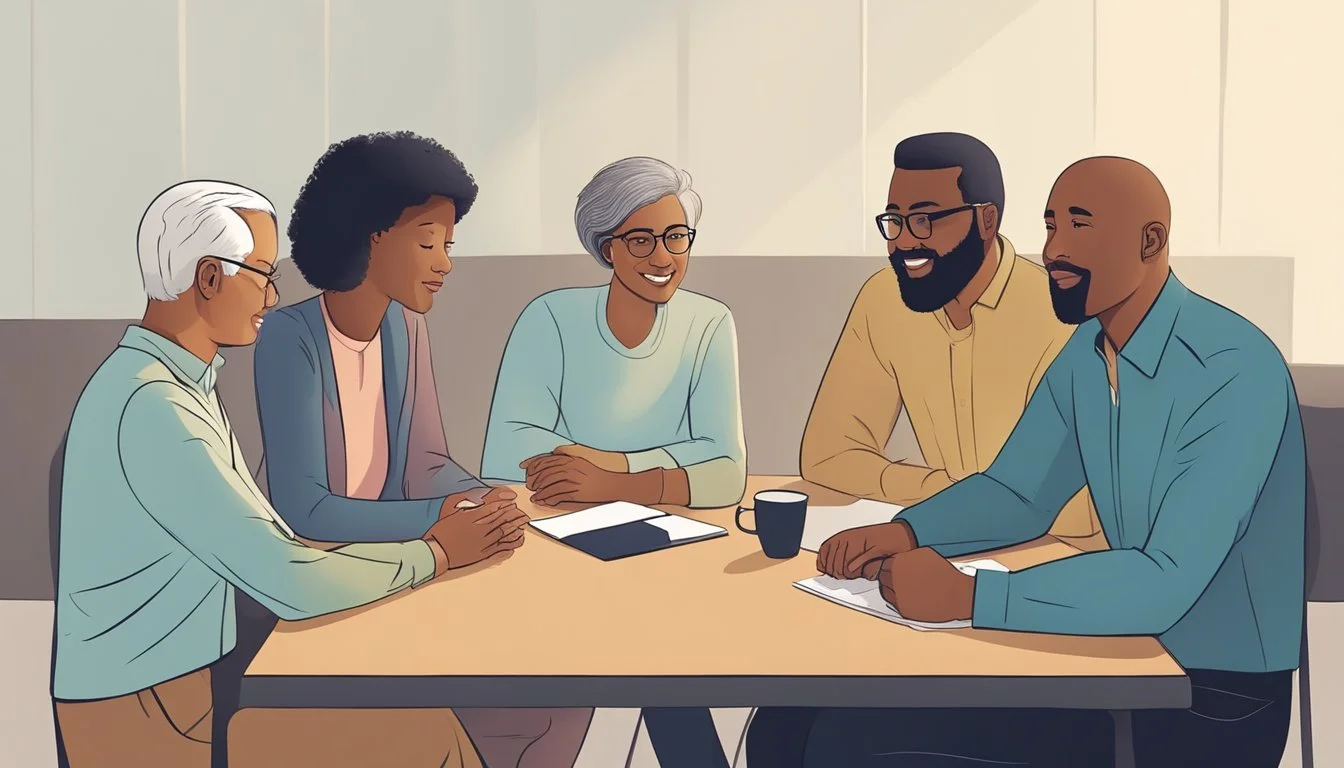8 Signs Your Intelligence Is Evolving with Age
Cognitive Growth Beyond Youth
Intelligence evolves throughout our lives, adapting and changing as we age. While some cognitive abilities may peak in our younger years, other aspects of intelligence continue to develop and improve well into adulthood and even old age.
Research shows that different mental skills reach their prime at various stages of life. Certain forms of intelligence, like wisdom, emotional regulation, and pattern recognition, often strengthen with age and life experience. Understanding how intelligence changes over time can help people appreciate their evolving cognitive strengths.
1) Solving Puzzles More Efficiently
As we age, our ability to solve puzzles often improves. This enhanced efficiency stems from accumulated experience and refined problem-solving strategies.
Adults may find themselves completing jigsaw puzzles faster than in their youth. They develop techniques like sorting pieces by color or edge first, streamlining the process.
Crossword enthusiasts might notice they fill in answers more quickly. Years of exposure to various topics and wordplay contribute to this increased speed and accuracy.
Sudoku solvers may discover they recognize number patterns more readily. This allows for quicker deductions and fewer errors in their solutions.
The brain's neural pathways strengthen with repeated puzzle-solving, leading to improved cognitive function. This results in faster processing and more efficient problem-solving approaches.
Puzzle-solving efficiency can extend to real-life situations. Adults often find they can navigate complex issues at work or in personal relationships with greater ease.
This improved puzzle-solving ability reflects a maturing intelligence. It demonstrates the brain's capacity for growth and adaptation throughout life.
2) Increased Curiosity to Learn
As we age, a growing desire to acquire new knowledge often emerges. This heightened curiosity signifies evolving intelligence and a more mature approach to learning.
Many adults find themselves drawn to subjects they previously overlooked or dismissed. They may engage in online courses, attend lectures, or pursue new hobbies with enthusiasm.
This curiosity stimulates brain activity, particularly in areas linked to reward anticipation. The brain's response to new information becomes more pronounced, enhancing memory formation and retention.
Older individuals frequently report a renewed interest in understanding complex topics. They seek out diverse perspectives and engage in deeper, more nuanced discussions about various subjects.
This increased curiosity often leads to improved problem-solving skills. By exploring different fields of knowledge, people develop more creative approaches to challenges in both personal and professional spheres.
The drive to learn extends beyond formal education. Many adults find joy in everyday discoveries, from exploring new technologies to understanding different cultures.
3) Better Decision-Making Skills
As individuals age, their ability to make sound decisions often improves. This enhancement in decision-making skills is a key indicator of evolving intelligence.
Experience plays a crucial role in this development. Years of navigating various situations provide valuable insights that can be applied to new challenges.
Older adults tend to approach decisions with more patience and consideration. They are less likely to make impulsive choices and more inclined to weigh the potential consequences of their actions.
Research suggests that the brain's neural circuitry related to decision-making continues to evolve throughout life. This ongoing development contributes to more refined judgment as people age.
Older individuals often demonstrate an increased ability to integrate complex information when making decisions. They can draw connections between different aspects of a problem more effectively.
The accumulation of knowledge over time also aids in better decision-making. A broader understanding of various topics allows for more informed choices across different areas of life.
Emotional regulation, which typically improves with age, further enhances decision-making abilities. Older adults are often better equipped to manage their emotions and make choices based on logic rather than impulse.
4) Enhanced Pattern Recognition
Pattern recognition is a key cognitive ability that often improves with age. As individuals accumulate more life experiences, their brains become better equipped to identify and interpret complex patterns in various situations.
This enhanced pattern recognition can manifest in multiple ways. Older adults may excel at spotting trends in business, social interactions, or even everyday occurrences that younger individuals might overlook.
The neocortex, the outer layer of the brain responsible for higher-order thinking, plays a crucial role in pattern recognition. With age, this part of the brain continues to develop and refine its ability to process and interpret information.
Improved pattern recognition can lead to better decision-making and problem-solving skills. Older individuals often draw on their extensive knowledge base to identify similarities between current situations and past experiences.
This cognitive enhancement can be particularly beneficial in professional settings. Experienced workers may quickly recognize patterns in data, customer behavior, or market trends, giving them a valuable edge in their fields.
5) Improved Emotional Regulation
As individuals age, many experience enhanced emotional regulation skills. This ability to manage and control emotions becomes more refined over time.
Older adults often display greater patience and composure in challenging situations. They are better equipped to handle stress and maintain a calm demeanor.
Life experiences contribute to developing effective coping strategies. People learn to recognize their emotional triggers and respond more thoughtfully.
With age comes increased self-awareness, allowing for better identification and understanding of one's own emotions. This awareness enables more adaptive responses to various situations.
Older individuals frequently demonstrate improved impulse control. They are less likely to react hastily and more inclined to consider consequences before acting.
The ability to empathize with others tends to strengthen over time. This enhanced empathy aids in navigating social interactions and maintaining relationships.
Emotional regulation skills can be actively cultivated through practices like mindfulness and self-reflection. Many older adults engage in these activities to further hone their abilities.
6) Greater Capacity for Abstract Thinking
As individuals age, their ability to engage in abstract thinking often improves. This cognitive skill allows people to consider concepts beyond concrete, literal interpretations.
Abstract thinkers can analyze ideas, identify patterns, and make connections between seemingly unrelated concepts. They excel at understanding metaphors, symbols, and theoretical constructs.
This enhanced capacity for abstract thought enables older adults to approach problems from multiple angles. They can envision potential outcomes and consider hypothetical scenarios more easily than their younger counterparts.
With age comes a broader perspective, allowing for more nuanced and sophisticated reasoning. Older individuals may find themselves better equipped to grasp complex philosophical ideas or scientific theories.
Abstract thinking also fosters creativity and innovation. As this skill develops, people become more adept at generating novel solutions and thinking outside conventional boundaries.
This cognitive growth contributes to wisdom and emotional intelligence. It allows for a deeper understanding of human nature, societal structures, and the intricacies of relationships.
7) Quicker Adaptation to Change
As individuals age, their ability to adapt to new situations often improves. This enhanced adaptability is a sign of evolving intelligence.
Experience plays a crucial role in this development. Years of encountering various challenges equip older adults with a broader range of problem-solving strategies.
The brain's neuroplasticity contributes to this adaptability. Contrary to old beliefs, research shows that the brain continues to form new neural connections throughout life.
Older adults often demonstrate flexibility in their thinking patterns. They can draw from diverse experiences to approach novel situations creatively.
This quicker adaptation extends to technological changes as well. Many older individuals embrace new technologies, learning to use smartphones, social media, and other digital tools effectively.
In professional settings, experienced workers frequently show an ability to adapt to new methodologies or organizational changes more smoothly than their younger counterparts.
This enhanced adaptability also manifests in social situations. Older adults often navigate complex interpersonal dynamics with greater ease, drawing on their life experiences.
8) Refined Critical Thinking
Critical thinking skills often improve with age and experience. As individuals grow older, they tend to develop a more nuanced understanding of complex issues.
This refined ability allows them to analyze problems from multiple angles and consider various perspectives before drawing conclusions. Older adults frequently demonstrate enhanced skepticism towards unverified information.
They become more adept at evaluating the credibility of sources and spotting logical fallacies in arguments. This skill proves invaluable in navigating the modern information landscape.
With age comes an increased capacity to recognize patterns and make connections between seemingly unrelated concepts. This ability aids in problem-solving and decision-making processes.
Older individuals often excel at contextualizing new information within their existing knowledge framework. This integration of fresh data with accumulated wisdom leads to more informed judgments.
The refinement of critical thinking skills enables older adults to approach challenges with greater patience and thoroughness. They are less likely to jump to hasty conclusions or make impulsive decisions.
Memory Retention And Cognitive Exercises
Memory retention and cognitive abilities can be enhanced through targeted exercises and continuous learning. These practices leverage brain plasticity and provide lasting benefits for mental acuity.
The Role of Brain Plasticity
Brain plasticity, or neuroplasticity, allows the brain to form new neural connections throughout life. This adaptability enables cognitive improvement at any age. Engaging in memory exercises stimulates neuroplasticity, enhancing retention and recall.
Jigsaw puzzles promote various cognitive skills, including perception and working memory. Regular puzzle-solving may protect against brain aging effects. Mental rotation exercises challenge spatial reasoning abilities.
Verbal and visual memorization techniques boost cognitive skills. These include mnemonic devices, visualization, and chunking information. Such practices engage different brain areas, promoting overall mental fitness.
Benefits of Continuous Learning
Continuous learning correlates with better mental functioning in later years. Higher education levels are linked to improved cognitive abilities in old age. This connection likely stems from the habit of regular mental engagement.
Learning new skills or information creates fresh neural pathways. This process strengthens existing connections and forms new ones. Languages, musical instruments, and novel hobbies are excellent choices for cognitive stimulation.
Varied learning experiences enhance cognitive flexibility. This adaptability supports problem-solving and creative thinking. Diverse intellectual pursuits also maintain mental sharpness and slow cognitive decline.
Emotional Intelligence And Social Skills
Emotional intelligence and social skills tend to improve with age, leading to better relationships and interactions. These abilities allow for more nuanced understanding of oneself and others.
Understanding Emotional Maturity
As people age, they often develop a clearer sense of their own emotions and reactions. This self-awareness enables better emotional regulation in various situations. Older adults may find it easier to manage stress, control impulses, and maintain composure during conflicts.
Mature individuals typically recognize the impact of their emotions on others. They learn to express feelings appropriately and constructively. This emotional balance contributes to more stable relationships and effective problem-solving.
Experience also teaches the value of patience and perspective. Older adults may be less likely to overreact to minor setbacks or temporary difficulties. They can draw on past experiences to maintain a more balanced emotional outlook.
Enhanced Empathy and Communication
With age comes an increased ability to understand and relate to others' feelings. This enhanced empathy allows for more meaningful connections and improved social interactions. Older adults often excel at reading non-verbal cues and picking up on subtle emotional signals.
Communication skills generally sharpen over time. Mature individuals tend to listen more attentively and express themselves more clearly. They may be more adept at navigating difficult conversations and finding common ground in disagreements.
Social skills benefit from years of practice. Older adults often have a wider repertoire of social strategies to draw from in various situations. They may be more comfortable in diverse social settings and better able to adapt their communication style to different audiences.
Problem-Solving And Analytical Thinking
As we age, our cognitive abilities often evolve in ways that enhance our problem-solving and analytical thinking skills. This development can manifest in improved critical thinking and increased adaptability when facing challenges.
Improved Critical Thinking Skills
Critical thinking becomes more refined with age and experience. Older adults often demonstrate a superior ability to evaluate complex information and make sound judgments. They tend to approach problems from multiple angles, considering various perspectives before reaching conclusions.
This enhanced critical thinking is partly due to accumulated knowledge and life experiences. Older individuals can draw upon a broader range of information when analyzing situations, leading to more nuanced and thoughtful solutions.
Research suggests that older adults excel at tasks requiring wisdom and strategic thinking. They often outperform younger counterparts in areas that demand careful deliberation and the application of life lessons.
Adaptability and Resilience
With age comes increased adaptability and resilience in problem-solving. Older adults often display greater flexibility in their thinking, allowing them to adjust strategies when faced with new challenges.
This adaptability stems from years of encountering diverse situations and overcoming obstacles. Older individuals have likely developed a toolkit of problem-solving techniques they can apply to various scenarios.
Resilience in problem-solving is another hallmark of aging intelligence. Older adults tend to persevere through difficulties, drawing on past experiences to maintain a positive outlook. They often demonstrate patience and persistence when tackling complex problems, qualities that enhance their overall problem-solving efficacy.












